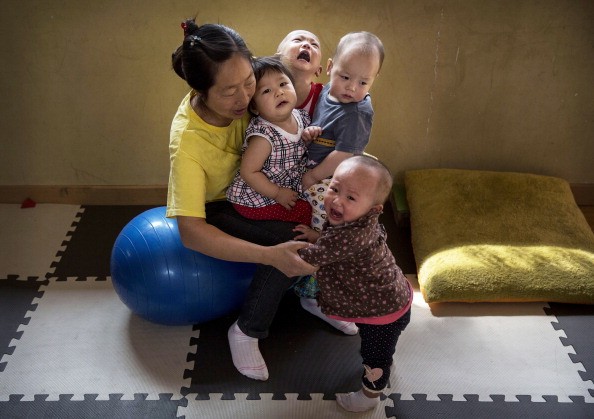China will now allow couples to have two children, effectively ending the decades-long one-child policy of the world’s most populous nation, the Communist Party of China (CPC) announced on Thursday at the end of a four-day plenary session in Beijing.
The move comes after years of public outcry against the one-child policy, which was enacted nationwide in 1979 to curb China's burgeoning population. However, concerns over the country's aging population caused by a constant low birth rate have led pressure for a change.
Couples who violated the one-child policy faced a variety of penalties, including steep fines, loss of employment and forced abortions.
Over time, the policy has been relaxed in some provinces, as experts raised concerns about rising social costs and diminishing worker numbers.
In 2013, the CPC further relaxed the rules by allowing couples in which at least one of the pair is an only child to have a second child.
"[The Chinese government will] fully implement a policy of allowing each couple to have two children as an active response to an aging population," the CPC said in a communiqué after the fifth plenum of the 18th CPC Central Committee.
The statement also emphasized that the nation will still uphold family planning policy, improve its population strategy and seek a balanced development of population.
Currently, 30 percent of China's population is over 50 years old. The total population of the country is around 1.36 billion, according to data from the BBC.
Li Bin, head of the National Health and Family Planning Commission, said that the policy reversal follows the changes in population growth.
"Having fewer children and giving them a better growing environment has become a mainstream belief of society," Li said on Thursday, adding that the revised policy will help optimize the nation's democratic structure, increase the supply of laborers and boost sustainable economic development.
According to Huang Wenzheng, a former Harvard University professor and population expert, the new policy is a plausible major move, but it is not enough to solve China's population problems.
"The extremely low fertility rate and the excessive aging of the population are irreversible in the near future," Huang told the Global Times, adding that while there may be a surge of up to 5 million babies in a year, the growth will drop drastically.
Stuart Gietel-Basten, associate professor at Oxford University, said that the reform will do little to change China's population but it is a "pragmatic response to an unpopular policy that made no sense."
The policy also drew flak from critics, saying that the two-child policy does not end China's insistence to control the fertility of its citizens.
"As long as the quotas and system of surveillance remains, women still do not enjoy reproductive rights," Maya Wang of Human Rights Watch told AFP.



























